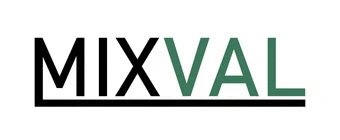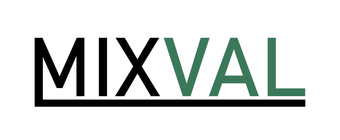It appears that your cart is currently empty
Cash Counting FAQs
10 Common Questions & Answers about Cash Counting Machines
Cash counting can offer some major benefits for your business, small or large. It speeds up the money counting process astronomically, usually offers counterfeit protection, and can quickly pay for itself with a fast ROI. Even with all of the obvious benefits, however, there are still quite a few questions that we receive about cash counting systems -- so we wanted to put together a list of all the money counting machines frequently asked questions (or “FAQs”) for you to review before you buy.
If you have additional questions not addressed here, please don’t hesitate to contact us at info@mixval.com.
-
What is a cash counting machine?
A cash counting machine (also called a money counter, bill counter, electric money counter, etc) is a system that will take a stack of money and automatically fan through the bills to quickly and accurately count the bills and, often, their total values.
-
How fast is a money counting machine?
When you consider how slow manual counting is, you can imagine that making the process automated with an electronic cash counter will improve productivity drastically. Depending on the model, most cash counting machines can vary with operating at speeds from between 600 and 1,600 bills per minute.
-
Does a cash counter sort bills too?
Some models of cash counters will also sort your bills for you. These models are usually indicated by having multiple “pockets” where you can signify to the machine to send a particular denomination of bill to the extra pocket. If sorting is important to you, you can check into models that do offer that added feature, or look into a separate bill sorting machine, depending on your budget and volume of use.
-
Do all cash counters have counterfeit detection?
Not always. Although most money counting machines are equipped with some sort of counterfeit scanner, that does not mean they are all created equal. Depending on the currency, bills may be equipped with security threads, UV properties, watermarks, color-shifting inks, magnetic inks, microprinting, a very specific/accurate bill dimension, and a linen/cotton blend paper embedded with colored fibers. Different money counting machines will have different capabilities to scan for some or all of these security measures. Most systems, even the smaller ones, will have a UV light feature, but the other scanners are a bit more specialized and will only be found in higher-end models. Ideally, you will find a machine that scans for at least 3 different security markings to provide multi-faceted protection; but this will all depend on your budget and volume.
-
How does a cash counting machine check for counterfeit money?
Money counters are equipped with various scanning devices that look for the specific security measures incorporated into bills. Most will have a UV light that shows watermarks hidden to the naked eye. Some will also have an MG sensor that searches for magnetic inks. And others will even search for the magnetic threads that are woven into the bill material itself.
-
What kinds of counterfeit protection do cash counters have?
Most machines will come with a minimum of one protection measure, typically a UV. UV stands for ultraviolet light and is used to check for hidden markings that are not visible to the naked eye. There is also MG, which stands for magnetic ink verification. This security measure searches for traces of iron particles in the ink characters. There is also IR, which stands for infrared detection and is used to detect inks that either reflect or absorb infrared light. Another common counterfeit detection mesures is a CIS which is a contact image sensor that checks the precise measurements of the bills and enables the cash counter to recognize denominations and scan/record serial numbers on capable equipment. Though a bit less common, you may also come across machines that offer MT/MR scanning, which searches for metal threads and magneto-resistive features throughout the bills. And finally, a size and thickness scanner checks the precise measurements (thickness, width, and height) of the bills for authenticity.
-
Can a cash counter work for USD, CAD, and other currencies?
Some electrical cash counting machines will handle just one currency, and others will handle various currencies. This really does depend on the model you choose. The models that offer multiple currencies may also have automatic detection and setup so you don’t have to indicate to the machine what currency you are counting; it does that for you automatically.
-
Can cash counters work for crinkled/older bills and crisp/new bills?
Money counting machines can handle mixed stacks of both old and new bills, though the speed may be affected by the bills inserted. For example, very wrinkled bills may run at only half the speed as a stack of new bills. These kinds of older bills take up more space in the hopper, and may require a bit more scanning for counterfeit features.
-
How much does a money counting machine cost?
You can order a basic money counting machine for around $100. Just remember that, just as with all machines, you get what you pay for. As you invest more, you receive more features, more accurate counterfeit detection, better quality parts and craftsmanship, warranties and protection plans, and more.
-
Where can I buy a cash counting machine online?
Buy the best money counting machines online at www.mixval.com. We offer several models from entry-level up to elite, professional systems for high volume money handling.
If your business handles stacks of cash on a daily basis, then investing in a new electronic money counting machine is a smart choice. These machines are incredibly fast and efficient, creating fast ROI as you save time in labor. Plus, forget about the hassles associated with manual counting, as they are a thing of the past.
Save time and money with a cash counting machine from Mixval today. Email us at info@mixval.com if you need help choosing the best system with the most effective features for your individual business needs.


0 comments